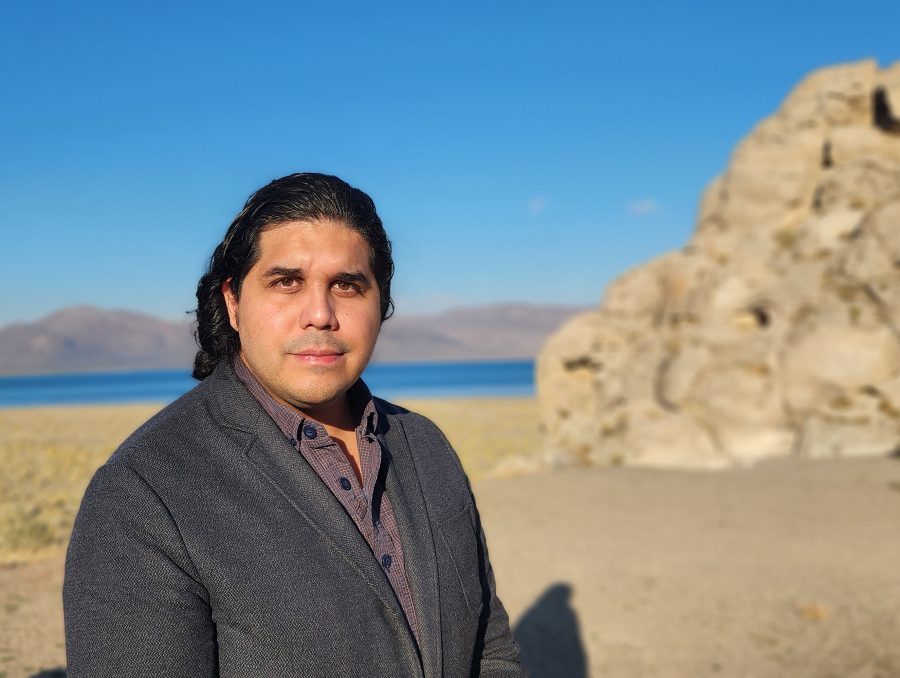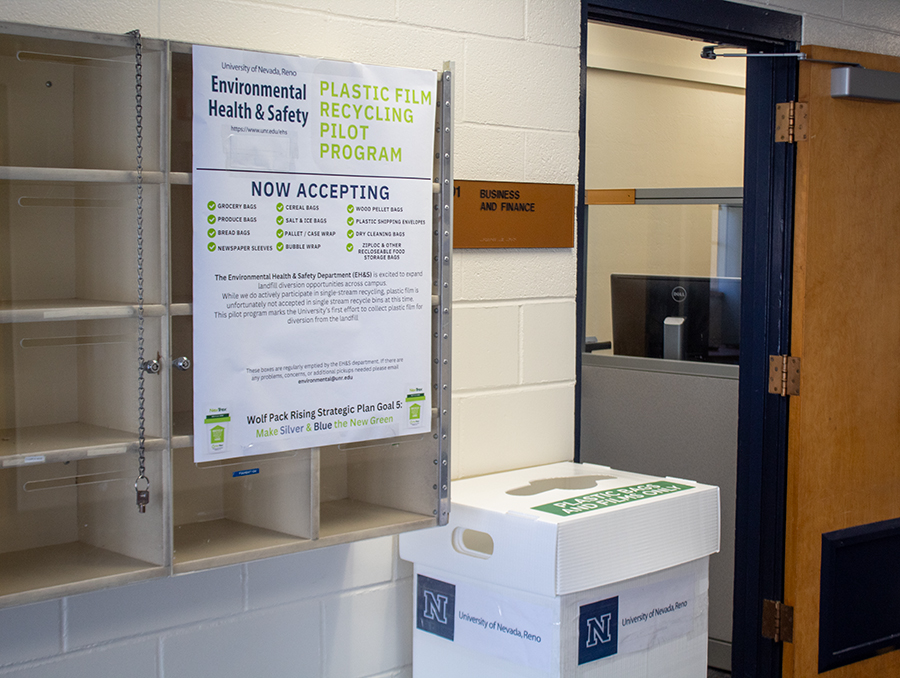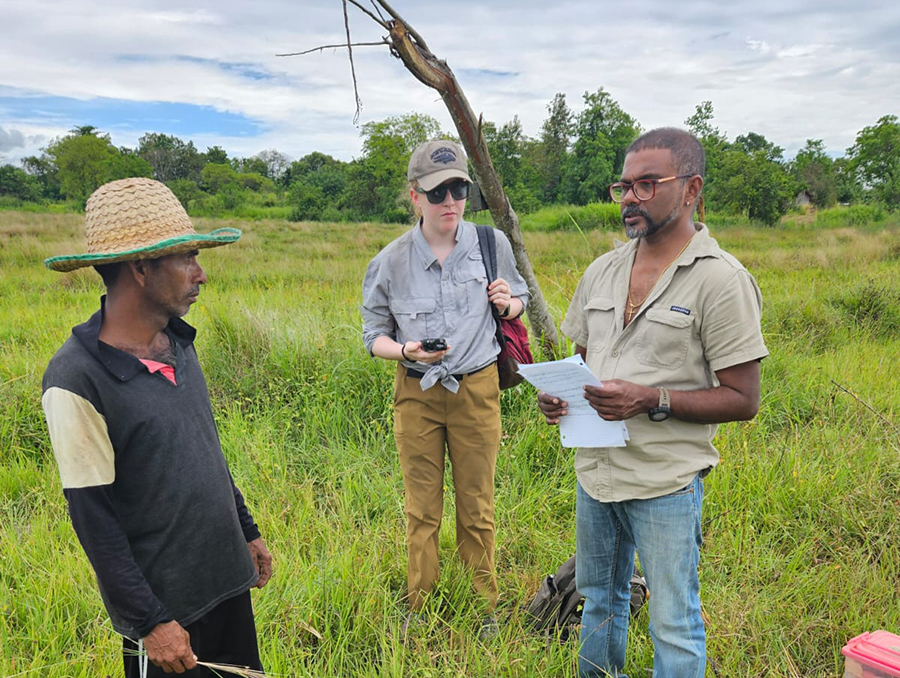Growing up on the Pyramid Lake Paiute Reservation, Andrew Tobey said he would observe and study insects during his spare time, and from a young age, knew what he wanted to strive for.
“I was the first in my family to pursue an education in science,” Tobey said. “I had no idea what this meant, how to become a scientist or what a scientist really does.”
He attended Truckee Meadows Community College where he ran into Nevada INBRE, part of the IDeA Network of Biomedical Research Excellence, which is a National Institutes of Health (NIH) program. Tobey transferred to the University of Nevada, Reno, where he worked in an INBRE lab, run by his mentor, Josh Baker, pharmacology professor and newly selected Associate Vice President for Research.
“As Director of NV INBRE, it has been one of my priorities – and pleasures – to work with an extraordinary team to develop research infrastructure throughout the state of Nevada and to create ways to provide funding and mentoring to students and junior research faculty,” Baker said. “The Tribal Academy of Health and Science is yet another great Nevada INBRE program that provides research opportunities to underrepresented students.”
During Tobey’s time as an undergraduate student, Nevada INBRE helped send him to an NIH session where he received the opportunity for an internship. Tobey graduated with his biochemistry and molecular biology degree and went on to do the Post-Bac Pathway Program at NIH. After two years, he was promoted to associate investigator and had many publications in thyroid cancer treatment research. Now, Tobey works in NV INBRE, an NIH grant awarded to the University of Nevada, Reno, but with the mission of bolstering biomedical research infrastructure and student pipeline programs statewide.
“Without the guidance I had from Nevada INBRE at an early stage of my educational career, I would have never been anywhere near the success I have today or possibly would have given up on my higher educational goals entirely,” Tobey said.
The Nevada INBRE Tribal Academy of Health and Science officially began in 2022. It was created in 2021 by Tobey to support Native American high school or college students through their education and career development in biomedical and health science fields.
“I aim to provide the same dedication and support that I received during my own educational journey,” Tobey said. “As I tell my students, we are tempered through the pressures of life but we do not have to travel alone.”
Danielle Yochum, a second-year psychology student in the College of Science, was the first to apply and join the academy.
“He really does go above and beyond for his students to make sure we have all the websites, textbooks and PDFs we may need for our assignments and studying for exams,” Yochum said. “He also gets me in contact with professors doing undergraduate research in fields I’m actually interested in. If I had an assignment that I was struggling with, I could easily text Andrew and he’d get back to me within minutes with help or somewhere I could go on campus to get that help.”
According to Tobey, more participation from the Nevada Native population is needed within biomedical fields. Expanding one’s knowledge about tribal health is an important part of the program to help tribal communities with health disparities.
“Tribal communities are in desperate need of more researchers and health care professionals who are of the culture they are serving,” Tobey said. “Being a part of the community is the best way to understand how to help and improve it. The best outcomes in science and medicine come from individuals who are intellectually diverse through upbringing, background, ideals, perspectives and knowledge.”
This program offers its support in many different ways. For example, students receive access to internship opportunities, academic help from science professionals, financial education, emotional development, learning about work/life balance, discussions about imposter syndrome and much more. Students and mentors meet weekly, providing a more personal connection through the program.
“Every person is unique with different backgrounds, interests, passions and objectives,” Tobey said. “Our methodology is to help guide the individual student in a way that works for them specifically.”
The program helps set students up for success in pursuing a career in science and medicine. If a student isn't sure what career they would like to enter, the program introduces them to different jobs and what could be a good fit for them.
“For me, the program has many huge benefits such as having a faculty member taking the time to get to know you and care about your well-being and academic progress,” Yochum said. “The program prepares me not only for a future career but just life in general.”
Nevada INBRE’s Tribal Academy of Health and Science began to help students at the University, but will soon begin a gradual statewide expansion starting with Truckee Meadows Community College.
“Once a student is accepted into the program, we will provide support as long as they desire support,” Tobey said. “Through their undergraduate studies, graduate studies, professional school and career.”















